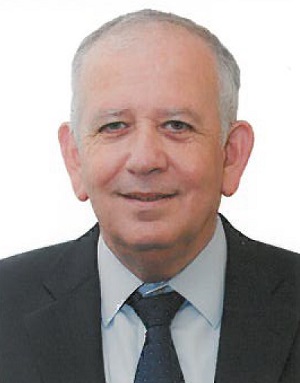|
|
Financing a Revival in Israeli Diamond Manufacturing
Q&A with Jacob (Kobi) Korn of the Israel Diamond Manufacturers Association
Feb 8, 2015 4:25 AM
By Ronen Shnidman
|
|
|
RAPAPORT... Jacob Korn has been a member of the Israel Diamond Exchange (IDE) since 1973. In 1984, he founded his own company, Korn Diamonds Ltd., which specializes in fancy-cut diamonds for the Swiss watch and fine jewelry industries. Korn has been president of the Israel Diamond Manufacturers Association (IsDMA) since July 2014.
Rapaport News: How did you start out in the diamond industry?
 JK: I am a second-generation diamantaire. I started polishing diamonds to support myself while I was an undergraduate studying economics and political science at Tel Aviv University. JK: I am a second-generation diamantaire. I started polishing diamonds to support myself while I was an undergraduate studying economics and political science at Tel Aviv University.
I worked as an economist for a bit, but when the Yom Kippur War broke out in 1973, I was called up for reserve duty for almost half a year because I was an officer in the army. When I returned to civilian life I joined the diamond industry and haven’t looked back.
Rapaport News: How is business in your segment of the diamond market?
JK: I primarily manufacture fancy shapes for customers in the Swiss watchmaking and fine jewelry industries. I also place stones into settings for clients.
In Israel, there used to be more fancy shape manufacturers, but a lot of them closed their factories and became dealers. My company does all of its polishing in a factory in Ramat Gan with close to 30 employees.
The overall diamond market is weak at the moment. However, compared to round diamonds, fancies are in decent shape.
Rapaport News: What motivated you to run for president of IsDMA?
There have been many disagreements in the Israeli industry between IsDMA, the IDE and the Israel Diamond Institute Group of Companies (IDI).
I understood that all the internal fighting would eventually lead us to ruin, so I ran for office. Now we are all working cooperatively to a degree never before seen in the Israeli industry.
The new manufacturing facility that will be inaugurated during February’s International Diamond Week was one issue of special concern. Some people wanted a much larger project that would have required an investment of $25 million. Others thought that the entire project was too ambitious and didn’t want the industry to fund it. As a result, the IDI, which provides much of the financing for these projects, could not act.
Eventually, the stakeholders in the Israeli industry reached a consensus that we should start with a pilot project of one factory. We’ll see how things develop before making a larger investment.
Rapaport News: What has been on the top of your agenda since entering office?
JK: I have set out to accomplish three things together with my counterparts at the IDE and IDI.
First, we must conclude negotiations with the local tax authorities, so the diamond industry here can operate like all other industries.
Secondly, I want to expand the amount of credit available to the Israeli diamond industry from $1.5 billion to $2.5 billion, which was its level pre-2008.
Lastly, we must build the infrastructure needed to support between 2,000 and 3,000 diamond polishers and factory workers, which is a realistic number.
Rapaport News: How do Israeli manufacturers get enough rough for their polishing operations?
JK: Most Israeli manufacturers buy their rough at tenders in Africa, Russia and Belgium.
Manufacturers here also procure rough on the secondary market. For example, an Israeli sightholder may sort his rough here and send most of it to his factory in India or Southeast Asia, but sell the rest to someone else in Israel.
Similarly, a manufacturer who specializes in large diamonds will only end up polishing part of the rough he purchases to create large stones. The rest of the rough he cuts off and sells to someone else in the bourse who manufactures smaller stones.
The intense competition for rough and the newly opened polishing factory is why IsDMA, the IDE and the IDI are sponsoring the new young diamantaire program administered by Penford (Israel). Penford has agreed to provide small allotments of rough diamonds to young diamantaires to enable them to gain manufacturing experience.
Rapaport News: Will tight financing impede renewed growth in Israeli diamond manufacturing?
JK: Israeli diamantaires are in a much better situation than some of our colleagues elsewhere because we have low levels of debt.
Diamantaires in other centers may have benefited from generous credit in recent years, but their debt is also much larger. At some point they will face a problem when they have to return the money.
We are trying to increase the availability of finance in Israel by introducing additional banks and investments funds to diamond lending. There are five funds that are considering entering the industry in cooperation with Bank Mizrahi-Tefahot, which already lends to Israeli diamantaires. I cannot provide details because talks are still ongoing, but this agreement could bring in another $100 million in financing to the industry.
|
|
|
|
|
|
|
|
|
|
Tags:
fancy shapes, IsDMA, Kobi Koren, Kobi Korn, Korn Diamonds, Ronen Shnidman
|
|
|
|
|
|
|
|
|
|
|

|
|